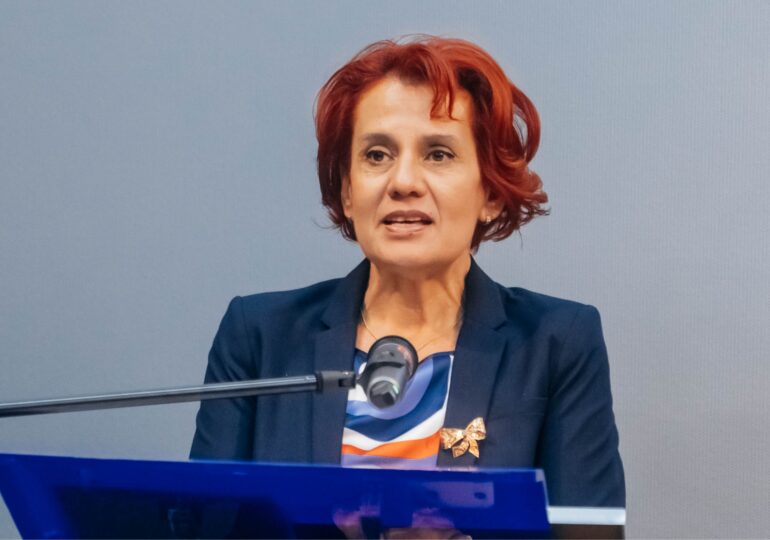President Nicușor Dan is doing exactly what the electorate expects from him in these first days after taking office. The major issue is that the expectations are not in line with the presidential prerogatives. The expectations are pushing the president into an area with which, constitutionally, he has no connection, and from here, either a great disappointment will follow, or pressure for a constitutional reform.
Mr. Dan has declared that the first and almost sole priority of the moment is the issue of the budget deficit, to which he has dedicated most of his meetings and statements. This is natural after an electoral campaign that unfolded as one for the election of the Prime Minister of Romania, not the president, and in which he put in writing that VAT will not increase in the next 5 years, a promise he has already nuanced, reducing it to the special rate for food.
But regardless of how many plans and calculations the president makes on the deficit or any other economic issues, the limits of his action in this field are extremely narrow. Just as they are in absolutely all areas, except for foreign policy and the country's defense system.
Everything is in the hands of the government and, of course, the parliamentary majority. Surely, no one has anything to comment on now. All parties, all ministries open their doors wide to him, present him with figures, let him make uncontested statements. It's the honeymoon period.
The trust rating of the new president is very high, around 70%, says sociologist Marius Pieleanu. Let's remember that immediately after Klaus Iohannis' election in 2014, under equally dramatic conditions, the parliament accepted in a single session a bunch of delayed parliamentary immunity lifts.
Experienced political animals, parties have no reason to try to cut the wave now. They prefer to swim under it, knowing that once the president appoints the prime minister, and the parliament invests in the government, his power over the governmental act collapses.
Whichever government comes to Victoria Palace, it will be dependent either on the PSD, or on a motley crew made up of chips detached from the parliamentary parties, following the model already opened by POT. Do we imagine that any of these options is a reformist one?
Let's look at the conditions set by the PSD to enter or support the government. They are clear opposition conditions: not to increase taxation and not to decrease investments in local authorities, meaning the money for mayors. Budget balancing without at least one of these is not possible. Either you raise taxes, or you cut expenses where there is waste. If not both.
Even in the PNL, the appetite for reform is not universal. Do you think liberal mayors want to be left without money or are they in favor of reforms that might affect their clientele? I have no doubt about the competence and integrity of Ilie Bolojan. But he is just one person and as he himself emphasized, an efficient prime minister is one who can rely on a majority moving in the same direction. Ilie Bolojan cannot work miracles alone.
Moreover, maintaining a coalition government under these conditions will require concessions, in decisions and positions, which can lead to great disappointments.
Nicușor Dan can talk, calculate, but until the president has, like previous presidents, a strong parliamentary presidential party to govern with, he will not be able to deliver according to expectations.
This party could emerge by 2028 through the attachment of pieces from the current parties, meaning through political switching, and another controversial one. And PNL and USR could unite completely under the presidential scepter, which is unlikely, it's still not enough without the existence of a new UNPR. Or a new party, but only in the perspective of future parliamentary elections. Both options imply a significant political erosion.
On the other hand, not all chips will necessarily adhere to the presidential project. There is a huge sovereigntist pool, with just 800,000 votes fewer than those who voted for President Dan, for which a new and much easier offer could emerge, as it represents opposition populism.
And there is another risk. If Nicușor Dan steps into the constitutional role, he will disappoint because he will abandon essential reform topics that are not within his competencies.
If he does not abandon them, the collision course with the future prime minister, whoever that may be, is inevitable. Only two prime ministers, Nicolae Văcăroiu and, to some extent, Emil Boc, accepted subordination without complaint to the president, but in a completely different political dynamic, meaning they were political creations of those presidents.
Otherwise, every time the president has tried to interfere with the prime minister, sparks have flown sooner or later. That's why I believe that the current moment could be, should be, a moment of constitutional clarification.
If we are voting for the president through direct and universal suffrage, and campaigns and programs are focused on prime ministerial duties, shouldn't the president be the prime minister, American-style?

